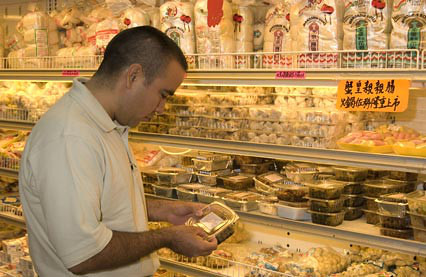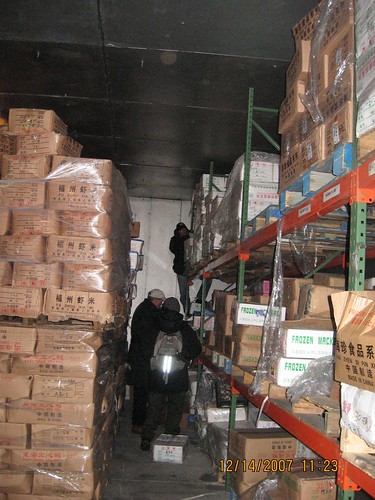
USDA’s Smuggling Interdiction and Trade Compliance (SITC), a program with USDA’s Animal and Plant Health Inspection Service (APHIS), is in its tenth year of protecting American agriculture from invasive pests and diseases. Some of SITC’s efforts toward this goal include identifying and closing routes of illegal products originating in foreign countries and products from pest and disease quarantine areas of the U.S.
So, what is a SITC Officer’s average day like? Well, working in New York City means there’s never a shortage of activities. My day starts off with reviewing the SITC database to see what new tips or requests to trace a product back to its source have been received. Depending on where that trace back takes me, I could visit three out of the five boroughs of New York City.
On any given day, I could be interviewing a suspected smuggler, donning a winter parka to inspect a warehouse-sized freezer, or supervising the destruction of seized materials that could have harmed our agricultural resources if not caught.
I have met all kinds of interesting people, listened to their stories, and watched neighborhoods change and expand. One of my earliest memories as a SITC Officer occurred in an Asian market. I had to solicit the help of a seven-year-old girl to help translate conversation between myself and her mother, the market owner. Seven years later, I came across this same girl (not so little anymore) in Chinatown with her mother. She actually remembered me!

During trace work, SITC officers are not only responsible for seizing prohibited items, but also providing instructions for properly importing or moving agricultural commodities interstate. The movement of agricultural goods via e-commerce, especially, poses a significant risk to American agriculture. The majority of people do not realize that these products can harm local and national agriculture and potentially devastate international trade markets. A misconception I often hear is “I thought since I was buying it off an online auction site that it was OK.”
Agriculture products require inspections, import permits, or other types of certification, regardless of whether they are purchased in person, over the phone, or online. If you intend to purchase agricultural commodities online, please make sure all state and federal regulations have been met. For more information about legally importing or moving agricultural products, e-mail sitc_mail@aphis.usda.gov or call the National SITC hotline toll-free at (800) 877-3835.



